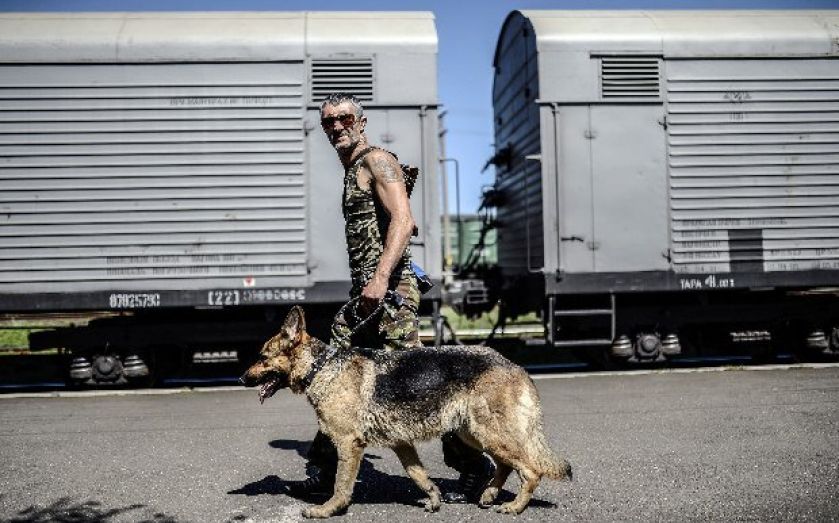Train with bodies from MH17 leaves crash site as all eyes turn to Europe

A train carrying the bodies from the Malaysian Airlines MH17 flight left the crash site on Monday evening and will be handed over to the Dutch authorities, according to the Malaysian Prime Minister.
Prime Minister Najib Razak said that he had reached a deal with pro-Russian rebels controlling the area where the plane was downed for the remains to be transported to the city of Kharkiv, Ukraine's second largest city, to be later flown to the Netherlands.
Razak confirmed that he had spoken to separatist leader Alexander Borodai and that the 'black boxes' from the jet would be "handed over to a Malaysian team in Donetsk, who will take custody of them".
The flight data recorders, which are actually orange, cannot identify how the jet was toppled but may offer other important clues into the tragedy, the second disaster to befall the troubled carrier in 2014.
US Secretary of State John Kerry on Sunday put forward what he called overwhelming evidence of Russian complicity in the shooting of the aircraft, but Kiev and Moscow continued to accuse each other of involvement in the incident.
As part of today's agreement secured by the Malaysian premier, international investigators will be guaranteed safe access to the crash site to begin a full investigation of the incident.

A piece of wreckage from the MH17 flight (Source: Getty)
This development is expected to ease some of the pressure that had been building on Russia and Vladimir Putin, whom the US and the EU have accused of not doing enough to rein in the rebels who had refused independent investigators access to the wreckage of MH17.
Over the weekend, EU leaders warned that they were preparing to issue fresh sanctions against the Kremlin as early as Tuesday, as the global outcry over the treatment of the remains of the 298 victims deepened the rift between Russia and the West.

A family pray next to floral tributes at the entrance to Schiphol Airport, in Amsterdam (Source: Getty)
Are further sanctions on the horizon?
All eyes now will be on how, if at all, the European Union reacts when its foreign ministers meet on Tuesday in Brussels. Since Russia's annexation of Crimea in March, the EU has hardly offered a united front on its approach towards Moscow.
The weak state of the Eurozone economy has meant many political leaders have been reluctant to punish Russia heavily, given the fear that any potential fallout could damage Europe's fragile recovery.
Economic and political powerhouse Germany has been particularly wary of disrupting relations with Moscow given the number of its firms, some 6,000, that conduct business in Russia. Even over the weekend, Angela Merkel struck a dovish tone compared to that of the US and UK governments.
France and Italy have also been wary of pushing for hard-hitting sanctions thanks to their own ties with the Kremlin. The UK has been alone among the major EU powers in calling for measures to be extended to President Putin's inner circle, so-called 'phase three' of the sanctions.
The next steps in the unfolding political fallout, which has rapidly become the biggest crisis between the West and Russia since the Cold War, could be crucial.